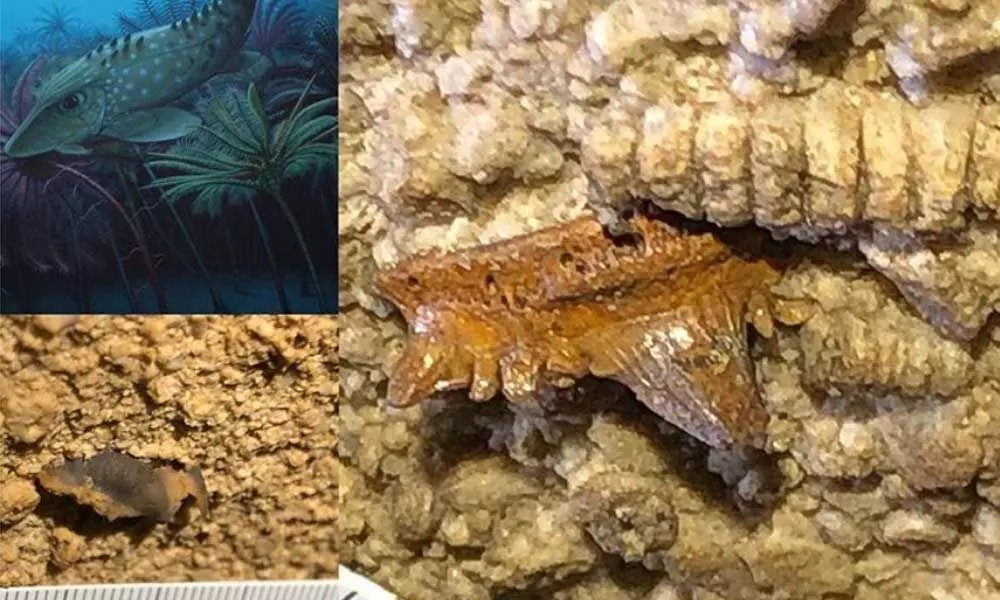A 330-Million-Year-Old Shark's Head found by Scientists Inside a Cave With Teeth Intact

On our planet, shark teeth are one of the most common fossils, but fossils of shark skeletons are very uncommon because cartilage does not typically survive the fossilization process.
On our planet, shark teeth are one of the most common fossils, but fossils of shark skeletons are very uncommon because cartilage does not typically survive the fossilization process.
At Mammoth Cave National Park, many palaeontologists work, they say they have discovered shark fossils that include part of a shark head and dorsal fins.
The Courier-Journal reports:
This project named as "Mammoth Cave National Park Fossil Shark Research Project" and it has begun when specialists mapping the cave system discovered some fossils.
They have also taken some photos that made their way to John-Paul Hodnett who is a palaeontologist and program coordinator at Dinosaur Park in Maryland.
Hodnett said:
"I wasn't exactly sure what I was going to see in the cave during my trip in November."
"When we got to our target specimen my mind was blown."
He also added:
The fossils were parts of the head of a shark that lived about 330 million years ago. The find includes a lower jaw, skull cartilage and several teeth from a species called "Saivodusstriatus" from the Late Mississippian period. While shark teeth are one of the most common fossils on the planet, fossils of shark skeletons are uncommon because cartilage does not typically survive fossilization.
Hodnett said more about this research:
The shark teeth are mostly intact and extremely detailed, and teeth and dorsal fins from other shark species are exposed in the cave ceiling and walls.
"We've just scratched the surface."
"But already it's showing that Mammoth Cave has a rich fossil shark record."
However, now, In upcoming October, their team of Paleontologists is planning to present a preliminary account of the project at the Society of Vertebrate Paleontology meeting in Cincinnati.











